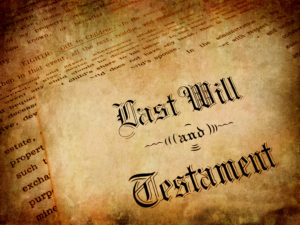
Is a Trust Better or a Will for Your Estate Planning?
Making arrangements for your death is not a pleasant prospect, but it is a responsibility that everyone has to deal with. If you have family and property, you want to ensure that the people of your choosing get what you intend. Two of the most popular ways to leave items to someone are wills and trusts. Is one better than the other? Learn about what each does so you can make a more informed choice.
Will
When a person dies, many states require the estate to go through probate. The laws where you live, and the value of your estate will dictate how probate occurs. Sometimes, a simple process allows for quicker distribution of your estate. Regardless of the value, the document that goes through probate is a will. A will should set out the property you own and the people who should receive it. You can use a will to leave cash, assets, and personal property. The caveat is that you must own the property outright. A loan may not encumber it, and another person may not have a stake in it.
Trust
A trust account is a tool used by attorneys and financial advisors to help distribute items to others. It moves assets out of your name and into the holding of the trust. Upon your death, the trustee or person you name assumes control of the trust. There are conditions you can place on this passing such as an age threshold. A trust can hold property that is real and also intangible. A trust does not pass-through probate and becomes immediately available upon presentation of your death certificate.
The Choice
When you go to create your will, you may wish to talk about trust accounts. While you should always have a will to make probate easier on your heirs, you may want to consider how efficiently a trust works after you die. Since probate takes time, it means your family has to wait a while to get their inheritance. If you hold a joint account with someone, they will continue to have access to that account even after your death. A trust is much like this, except the trustee does not have access while you are alive. A trust is more like a life insurance policy in that it kicks in after your death and distributes without legal intervention directly to the beneficiary.
Having a varied estate plan will give your family peace in the face of the emotional toll your death will take. An estate planning lawyer from a firm like Brandy Austin Law Firm, PLLC can set out your options and allow you the chance to take care of your family in different ways when you die.
